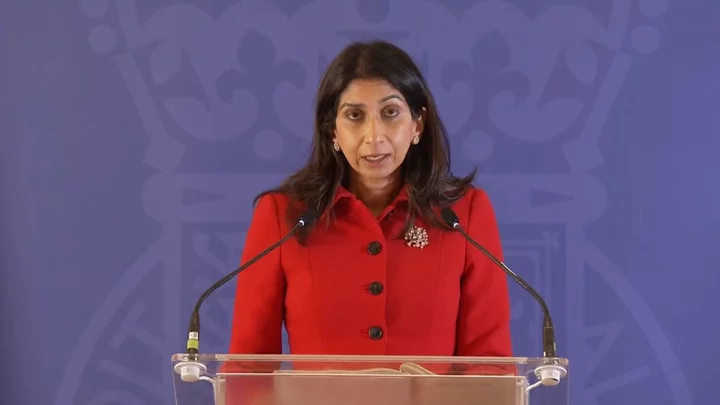
Home Office could force delays in tech security fixes under 'short-sighted’ proposals
When it’s not making disastrous decisions around the housing of migrants on barges found to contain Legionella, the Home Office is reviewing the 2016 Investigatory Powers Act and considering a proposal to require telecoms operators to notify the government of “technical changes” to their services before they are implemented – something which has been slammed as “catastrophically short-sighted”. Between 5 June and 31 July, the Home Office consulted on revising the legislation passed by Theresa May’s government, with one of the planned changes relating to “notification requirements” placed on businesses. The consultation document reads: “We propose to make changes that would support cooperation between government and industry by setting clear expectations about the circumstances in which operators might be expected to notify the Secretary of State of planned changes to their service that could have a negative impact on investigatory powers and, where necessary, mandating notification of planned changes. “This would be intended to facilitate early engagement between operators and the government so that, where necessary, appropriate steps can be taken in good time to ensure that any negative impact on investigatory powers is fully considered, and so that we can ensure continuity of lawful access to data against a background of changing technology.” However, it was a news article from Just Security on Tuesday which reignited concerns that the UK Government is about to do something “ultimately unsafe”. The piece explains: “While the proposal does not specify what technical changes would require notification, these may include changes in the architecture of software that would interfere with the UK’s current surveillance powers. “As a result, an operator of a messaging service wishing to introduce an advanced security feature would now have to first let the Home Office know in advance. “Accordingly, the Secretary of State, upon receiving such an advance notice, could now request operators to, for instance, abstain from patching security gaps to allow the government to maintain access for surveillance purposes.” If the idea of Suella Braverman being able to halt security fixes so the government can continue to spy on people doesn’t fill you with dread, we’re not sure what will. While the Home Office goes on to add in its consultation document that there is a proposed requirement for the home secretary to “consider the necessity and proportionality” of imposing such a duty on businesses, Twitter/X users remain fairly troubled by the prospect: The Investigatory Powers Act, which was dubbed “the snooper’s charter” by critics when it was first proposed, is separate to the Online Safety Bill, which the government is still trying to pass through parliament. Sign up to our free Indy100 weekly newsletter Have your say in our news democracy. Click the upvote icon at the top of the page to help raise this article through the indy100 rankings.
2023-08-23 21:55
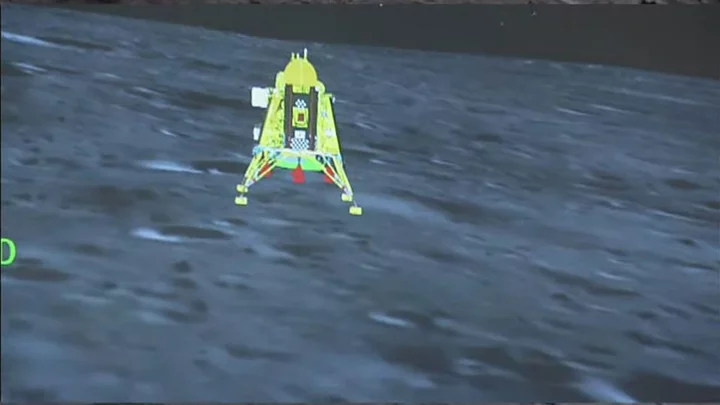
India landed on the Moon for less than it cost to make Interstellar
India has successfully landed on the Moon – for less than the cost of the film Interstellar. The Indian space agency announced on Wednesday that it had completed a “soft landing” on the lunar surface, near its southern pole. It becomes the first ever to land there, and just the fourth country to successfully send a mission to the Moon at all. And it did so on a very restrictive budget. The Chandrayaan-3 cost was sent to the Moon at a cost of about 6.15 billion rupees, or $75 million, according to Reuters. That is less than the cost of most blockbuster space films. Gravity cost $100 million, The Martian cost $108 million – and it was less than half the cost of Interstellar, which was filmed on a budget of $165 million. It even costs less than some houses. The UK’s most expensive house, for instance, went on sale at £200 million, or nearly three-and-a-half missions to the Moon. The budget is even less than India allocated to Chandrayaan-2, the previous attempt to land on the Moon in 2019, which ended in failure when the lander crashed. That cost around 8 billion rupees, or about 30 per cent more than the latest successful mission, though engineers have made clear that many of the learnings from that earlier launch had been integrated into the latest one. India has looked to build a reputation for cost-effective but still successful missions to space. It comes as the country encourages investment in the private space industry and businesses focused on satellites. The price of the whole Indian mission is similar to that charged by SpaceX for one Falcon 9 launch. That is charged at $67 million, according to its website. Read More AI can detect Parkinson’s up to seven years before symptoms appear, study finds Justin Trudeau slams Facebook for blocking news stories about wildfires
2023-08-23 21:54

'Hidden structures' discovered deep beneath the dark side of the moon
Scientists have just uncovered billions of years’ worth of secrets buried beneath the surface of the moon. Our celestial companion has been a source of awe and mystery since time immemorial, but now, thanks to China’s space programme, we’re starting to piece together its past. In 2018, the Chang’e-4 lander, of the Chinese National Space Administration (CNSA), became the first spacecraft ever to land on the far side (or the dark side, if you'd prefer) of the moon. Since then, it has been capturing incredible images of impact craters and extracting mineral samples, offering a long-sought insight into the structures that make up the top 1,000 feet of the moon’s surface. Earlier this month, the Chang’e-4’s findings were finally published, and the world was invited to delve deep into the history of our cherished natural satellite. The results, published in the Journal of Geophysical Research: Planets, reveal that the top 130 feet (40m) of the lunar surface are made up of multiple layers of dust, soil, and broken rocks. Hidden within these layers is a crater, which formed when a large object slammed into the moon, according to Jianqing Feng, an astrogeological researcher at the Planetary Science Institute in Tucson, Arizona, who co-led the pioneering analysis. Beneath this, Feng and his colleagues discovered five distinct layers of lunar lava that spread across the landscape billions of years ago. Experts believe that our moon formed 4.51 billion years ago, when a Mars-size object crashed into Earth and broke off a chunk of our planet, as Live Science notes. Over the following 200 million years or so, the moon continued to be pummelled by space debris, with numerous impacts leaving cracks in its surface. Just like on Earth, the moon’s mantle contained pockets of molten magma, which infiltrated the newly formed cracks thanks to a series of volcanic eruptions, Feng explained. However, the new data provided by Chang’e-4 showed that the closer the volcanic rock was to the moon’s surface, the thinner it got. "[The moon] was slowly cooling down and running out of steam in its later volcanic stage," Feng said. "Its energy became weak over time." It is understood that volcanic activity on the moon died out between a billion and 100 million years ago, which means it is largely considered “geologically dead”. However, Feng and his co-authors have suggested there could still be magma buried deep beneath the lunar surface. Chang’e-4 still has much work to do, and Feng and his team hope this is just the beginning of their literally ground-breaking mapping of the moon. Sign up for our free Indy100 weekly newsletter Have your say in our news democracy. Click the upvote icon at the top of the page to help raise this article through the indy100 rankings.
2023-08-23 21:49

Appen Launches AI Chat Feedback and Benchmarking Solutions for Enhanced LLM Evaluation
KIRKLAND, Wash.--(BUSINESS WIRE)--Aug 23, 2023--
2023-08-23 21:14
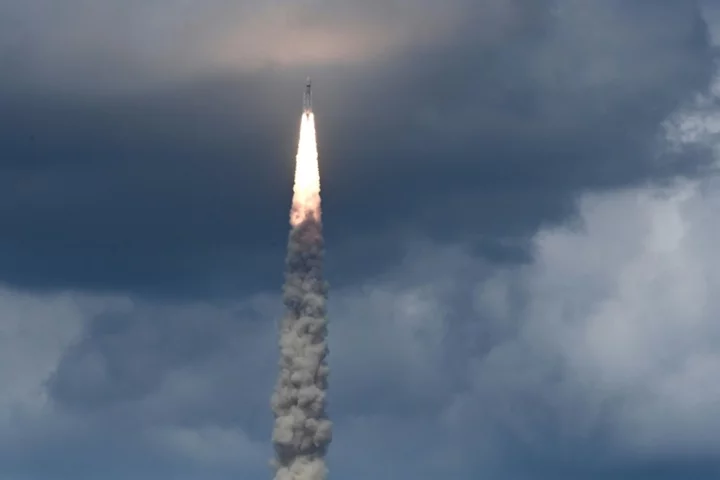
India becomes first nation to land spacecraft near Moon's south pole
India on Wednesday became the first nation to land a craft near the Moon's south pole, a historic triumph for the world's most populous nation...
2023-08-23 21:02

OneRail Earns ‘Top 100’ Ranking on the Inc. 5000 Annual List for Second Consecutive Year
ORLANDO, Fla.--(BUSINESS WIRE)--Aug 23, 2023--
2023-08-23 21:01

Redgate to hit ten US cities on its ‘Database DevOps Rocks’ tour
CAMBRIDGE, England--(BUSINESS WIRE)--Aug 23, 2023--
2023-08-23 21:01
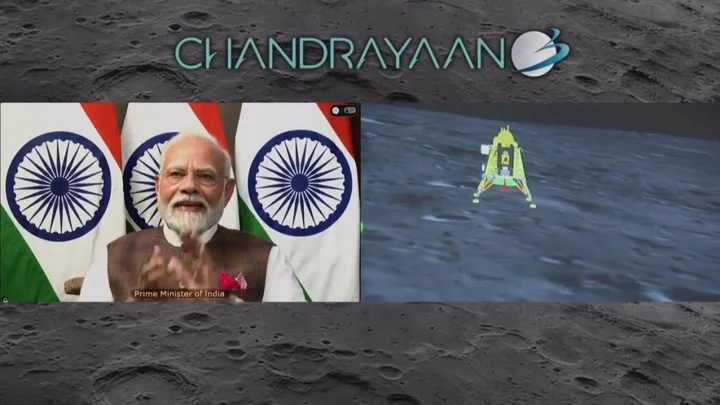
Watch: India becomes first country to make historic moon landing on planet's south pole
This is the moment India made its historic first landing on the moon's south pole, just days after Russia's attempt ended in a crash. India's attempt to land its Chandrayaan-2 mission near the south pole in 2019 was unsuccessful, but the Chandrayaan-3 mission went off without a hitch. The lander, known as Vikram, touched down at 13:34 BST. It's thought no attempts have been successful so far because of its rocky landscape, making it difficult to find somewhere to land safely. Sign up to our new free Indy100 weekly newsletter
2023-08-23 20:41

The 'King of Crypto' Sam Bankman-Fried lives on bread and water
The lawyers acting for FTX founder Sam Bankman-Fried have told a magistrate judge that he can’t adequately prepare for trial in six weeks as he’s living on bread, water and peanut butter. Lawyers on Tuesday (August 22) claimed that he won’t be ready for the trial without proper access to computers and necessary medications to help him concentrate. The comments came at a Manhattan federal court hearing after Bankman-Fried pleaded not guilty to seven charges including wire fraud and multiple conspiracy counts he’s set to face at his October 3 trial. Attorney Mark Cohen told Netburn that Bankman-Fried hadn't received medication that's necessary for him to focus since he was sent to jail on Aug. 12. He said his client continued to be served a “flesh diet,” leaving him to rely solely on bread, water and sometimes peanut butter. “Your Honor, that’s outrageous and needs to be remedied,” he said of a man who had shuffled into the courtroom, his legs shackled. Another defense attorney, Christian Everdell, told Netburn that Bankman-Fried was being denied the right to adequately prepare for trial because he was only allowed to review millions of pages of evidence two days a week. “There is no way for him to effectively prepare for his defense,” Everdell said. Bankman-Fried is the founder of failed cryptocurrency exchange FTX. He was charged with "one of the biggest financial frauds in US history" last year by US authorities. Sign up for our free Indy100 weekly newsletter Have your say in our news democracy. Click the upvote icon at the top of the page to help raise this article through the indy100 rankings.
2023-08-23 20:23

Oklahoma’s New Broadband Map Will Help Guide High-Speed Internet Expansion Across the State
COLORADO SPRINGS, Colo.--(BUSINESS WIRE)--Aug 23, 2023--
2023-08-23 19:50

Options Appoints Former TNS and ICE Executive, Scott Feagans, as SVP of Sales Engineering
LONDON & NEW YORK & HONG KONG--(BUSINESS WIRE)--Aug 23, 2023--
2023-08-23 19:16

BlackRock Backs Fewer Climate, Social Shareholder Proposals
BlackRock Inc. backed fewer shareholder proposals on environmental and social issues over the past year as it stressed
2023-08-23 19:00
You Might Like...

Mushrooms appear to have 'conversations' with each other after it rains

OpenAI CEO Sam Altman says AI can go ‘quite wrong’ while advocating for government intervention

Apple could be dropping leather from iPhone cases and Watch bands, reports claim

Inside the ExpressVPN Layoffs: Taking a Page Out of Elon Musk's Playbook?

Yikes: Apple Patches 3 New Zero-Day Exploits for iOS, MacOS

Scientists discover reason why we experience deja vu
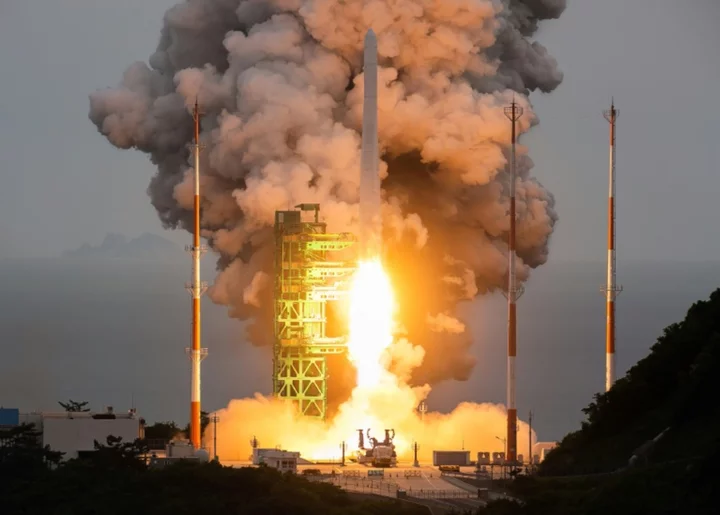
South Korea launches homegrown rocket after delay

Hypori Appoints Vernon O’Donnell as Chief Customer Officer
